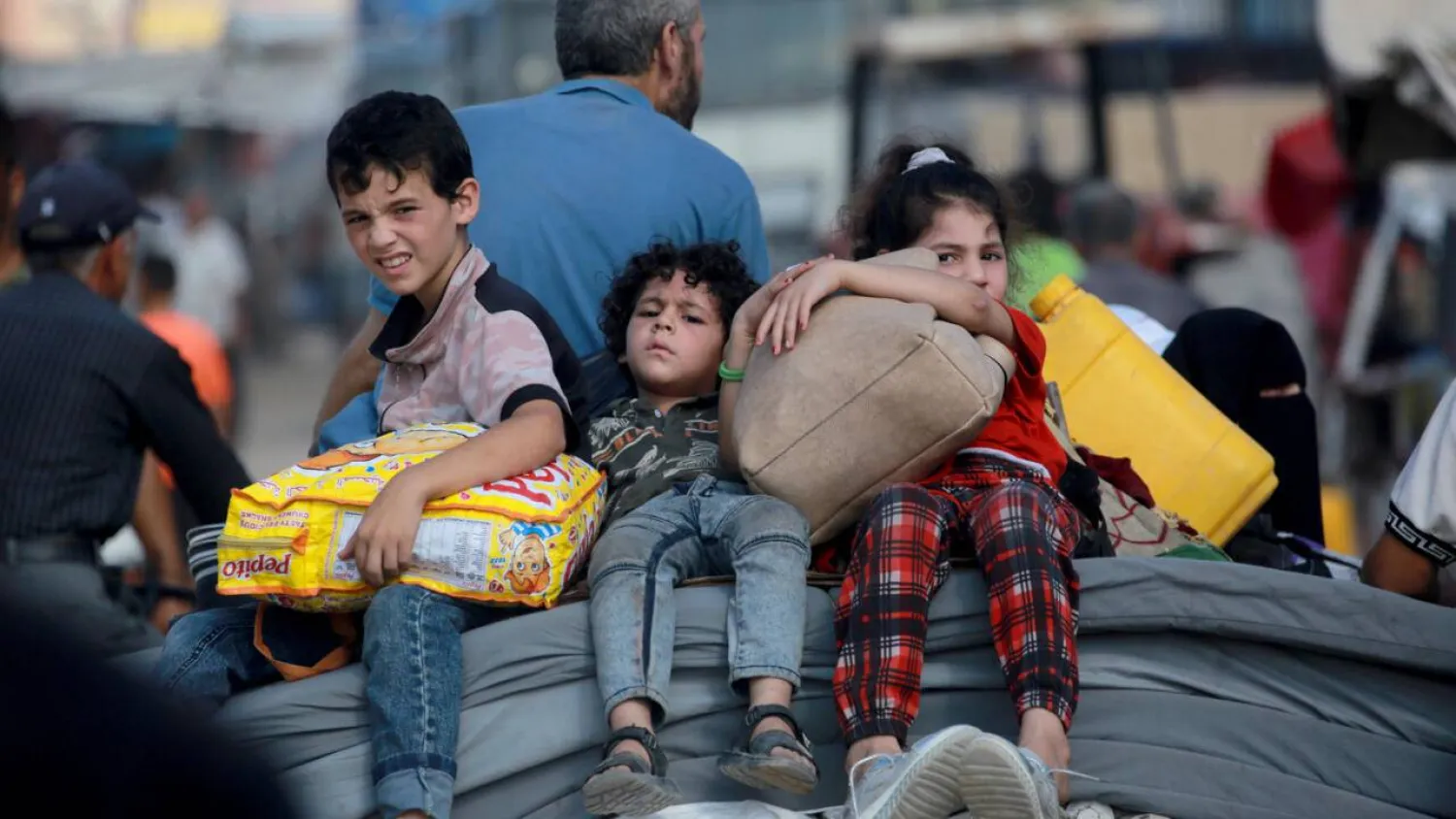The Israeli military has issued so many evacuation orders in 10 months of war that many Gaza civilians no longer heed them, despairing of finding space or safety in the shrinking "humanitarian" zones.
Over the first three weeks of August, the Israeli army sent out 11 evacuation orders via flyers dropped from planes, text messages or social media.
They called on 250,000 Gazans, almost all of whom had been displaced at least once already, to leave their place of shelter.
"The Israeli army will operate with force against terrorist organizations in this area. For your safety, we urge you to evacuate immediately," read one such order sent out Thursday in the southern province of Khan Yunis.
"Every time we arrive somewhere, we get a new evacuation order two days later. This is no way to live," Haitham Abdelaal told AFP.
Amneh Abu Daqqa, 45, said she saw no point in moving again, so few were the options for safe haven.
"To go where?" asked the displaced mother of five.
"I live on the street, literally. I don't have 500 shekels ($133) to rent a donkey-pulled cart. And I don't even know where I'd go," she said.
"There is nowhere safe, there are air strikes everywhere".
'Where will we go now?'
The proliferation of Israeli evacuation orders also severely complicates relief distribution by United Nations agencies in a blockaded territory where aid trickles in via Israeli-held entry points.
Wednesday's evacuation order included "80 makeshift sites" but also offices and warehouses used by aid agencies, the UN humanitarian affairs office (OCHA) said.
The orders also affected "three water wells... which serve tens of thousands of people", OCHA added.
Sometimes, the evacuation orders close roads, including the main Salah al-Din highway that runs the length of Gaza from north to south.
When portions of it are included in evacuation orders, transport becomes a headache.
Trucks must use the coast road that runs parallel to Salah al-Din, currently lined with makeshift camps that make movement "extremely slow and at times impossible", OCHA said.
Nerman al-Bashniti, who lives in one such camp, told AFP: "When the Israeli army took the street that we were on, we ran to the sea, left our tent and all our belongings inside.
"Where will we go now? We can only throw ourselves into the sea and let the fish eat us".
Contradictory orders
In the early days of the war, the Israeli army touted its plans for the displaced.
After it ordered the evacuation of the north in the first week of the war, it published a map of Gaza broken down into several hundred numbered blocks, and declared the southern area of Al-Mawasi a "humanitarian zone".
To let Palestinians know precisely which areas will be targeted by military operations, its evacuation orders feature the numbered blocks varying in size depending on building density.
But the many blocks have made the orders confusing and sometimes even contradictory, such as on occasions when blocks listed for evacuation were not featured as to be evacuated on the accompanying maps.
From 1,200 inhabitants per square kilometer before the war, the Al-Mawasi "humanitarian zone" now houses "between 30,000 and 34,000 people per square kilometer" and its protected area shrank from 50 square kilometers to 41, the UN calculated.
Most of Gaza is one extended built-up area, but Al-Mawasi was the location of most of the territory's Jewish settlements before Israel demolished them when it pulled out in 2005 leaving farmland fringed by the beach.
Now the area is a vast tent-city with more families desperately looking for space to pitch a tent with each new evacuation order.
Proliferating Evacuation Orders Sow Chaos, Confusion In Gaza

A Palestinian family flees Gaza's main southern city of Khan Yunis in response to an Israeli evacuation order. Bashar TALEB / AFP/File

Proliferating Evacuation Orders Sow Chaos, Confusion In Gaza

A Palestinian family flees Gaza's main southern city of Khan Yunis in response to an Israeli evacuation order. Bashar TALEB / AFP/File
لم تشترك بعد
انشئ حساباً خاصاً بك لتحصل على أخبار مخصصة لك ولتتمتع بخاصية حفظ المقالات وتتلقى نشراتنا البريدية المتنوعة







